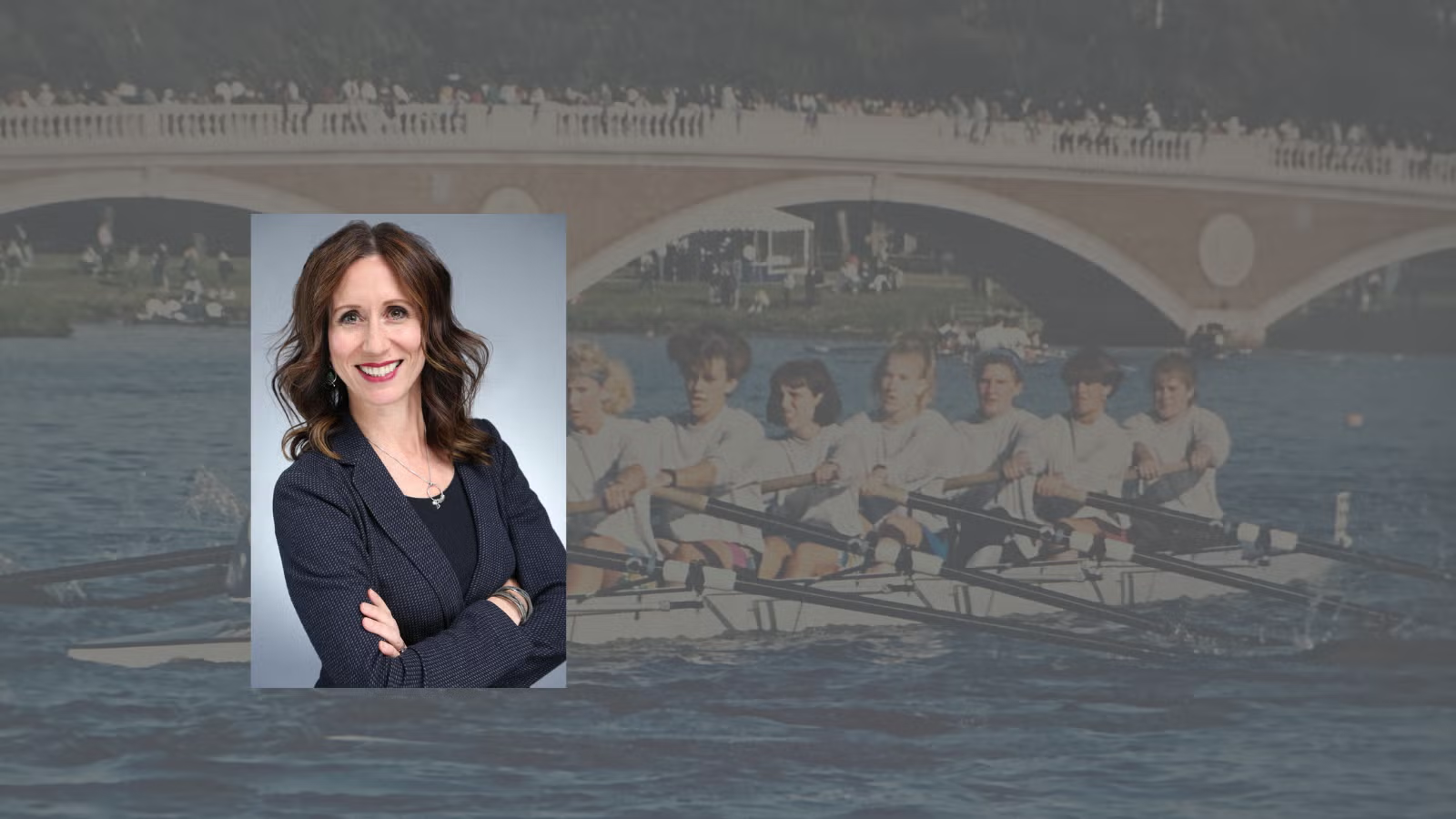An international affairs degree led to a successful corporate law career—plus a way for Tanya Jaeger de Foras (SFS’93) to live out her values of sustainability and mentorship.
During Tanya Jaeger de Foras’ first semester at SFS, the Berlin Wall fell, students protesting the communist government in Prague were beaten by riot police and then-President George H.W. Bush and then-Soviet General Secretary Mikhail Gorbachev met and released a statement that the Cold War must end. Over the next few years, while Jaeger de Foras worked toward her degree, Nelson Mandela was released from a South African prison after 27 years; Iraq invaded Kuwait, sparking the first Gulf War; and the Soviet Union dissolved.
Against this backdrop of stunning geopolitical upheaval, Jaeger de Foras found a home among the students and faculty of SFS. She studied global affairs at a time when, in her words, “Everything was changing in that moment; we literally had no textbooks. We had to watch CNN (24-hour news was still novel), read the print newspaper and come to class to figure it out as the world was changing around us in real-time. It was so, so exciting.”
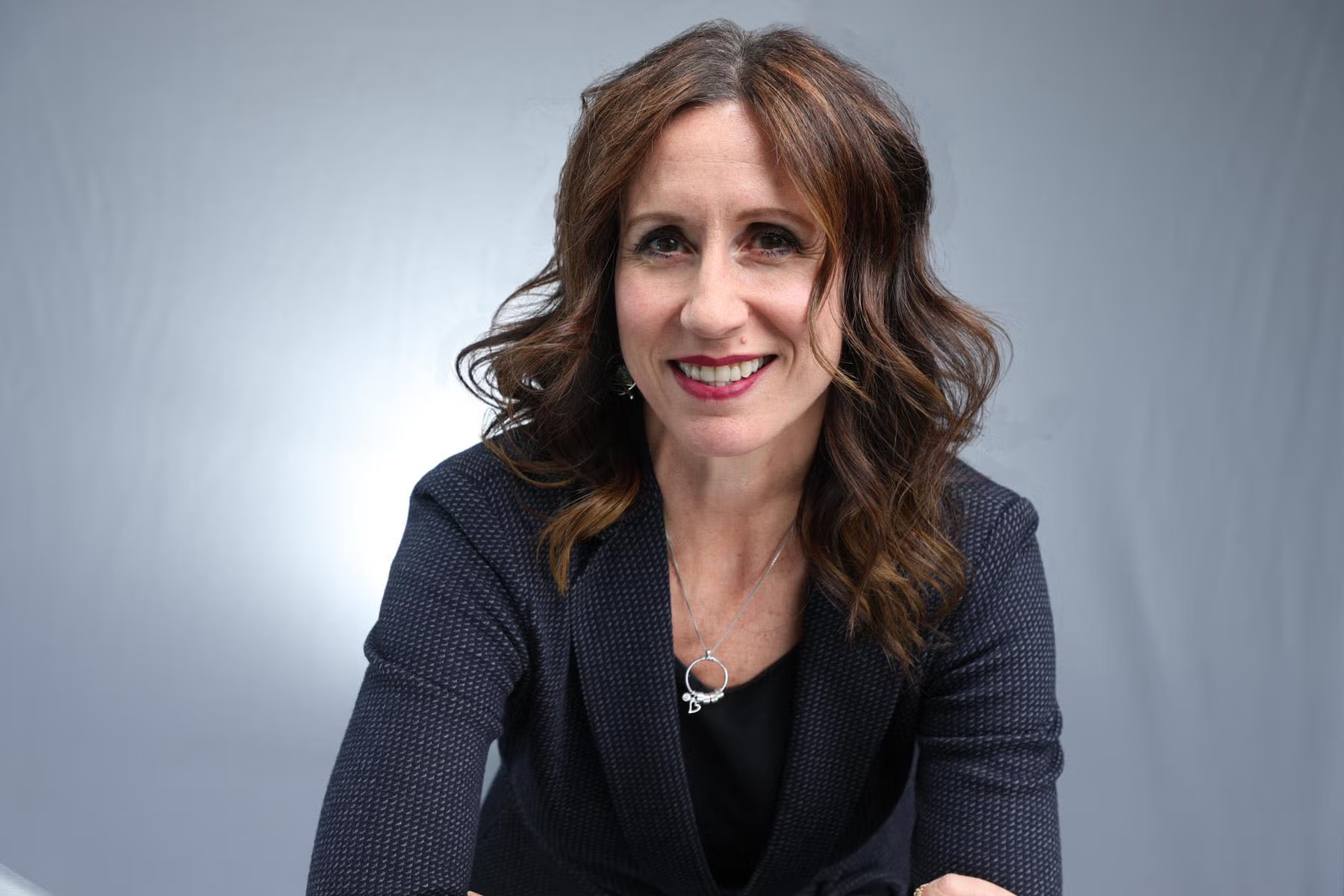
Jaeger de Foras went to law school after graduating from SFS, and she has pursued a successful career in corporate law that has led to her current role as Senior Vice President, Chief Legal Officer, Corporate Secretary, and Chief Compliance Officer of Ingredion Incorporated. She was listed among The Top 50 Women Chief Compliance Officers of 2025 and Top 50 Women Leaders of Chicago by Women We Admire earlier this year.
Along the way, she’s found the Hoya network to be a powerful positive force in her life: “My network includes a lot of alumni as friends, but also in professional capacities. The chairman of my company’s board is an SFS alumnus. One of my leading securities advisors is an SFS alumnus too. We talk to each other regularly, and it’s really quite wonderful.”
Jaeger de Foras, who has lived and worked in the U.S., Canada and Europe and speaks English, French, German, Italian and Spanish, spoke with us about her journey to SFS, her time on campus, her career and why she advises current students to “try it all.” Our conversation has been edited for length and clarity.
Why did you decide to attend the School of Foreign Service as an undergraduate, and what played into that decision?
I’ve always been aware of the broader world, and for as long as I can remember, I’ve been interested in politics and policy on a global basis. I think this is because I grew up as a first-generation German-Canadian in eastern Canada in a particular time. My parents immigrated from West Germany to Canada in the 1960s before starting their family. The 1970s and ‘80s in Canada were a particularly rich moment of continuing immigration and multiculturalism, as well as the early days of the then named “NAFTA” American free trade agreement. When we spent summers as a family in Germany, I was also exposed to European economic and development issues; we had family in East Germany; the “European Union” was new-ish. All this drove a real interest for me in global matters, policy, even politics.
In high school, I was a debater and politically active. The first time I voted in a Canadian election, I did so as the Progressive Conservatives’ or ‘Tories’ youth leader for the riding of my hometown. I also couldn’t take my eyes off the U.S. and world issues and American engagement from the perspective of the smaller neighbor to the north. It just became very natural that I would study international affairs. I had good opportunities, including to go to Ottawa to study. But, if you can go to Washington, DC, to the very storied Georgetown School of Foreign Service and study international affairs, you definitely go there. Also, I may not have known it at the time, but as a person of faith, although not Catholic, Jesuit educational ideals are important to me. The notion of being a man or a woman for others, specifically in the sense of international relations, social justice, equity and giving back, really appealed to my moral compass and still does. All that, combined with the fact that when I went on my college tours in March of 1989, driving down from Toronto, where it was still snowing, to DC, where the grass was green, the cherry blossoms were out and Georgetown was as lovely as ever… of course I was going to become a Hoya.
“My experiences and what I learned helped to broaden my career and create opportunities as I went along.” -Tanya Jaeger de Foras (SFS’93)
Do any favorite professors or classes stand out in your memory?
Yes, absolutely! Freshman year was a bit of a blur. Sophomore year, we were required to complete a seminar to go deeper on select topics. I won a lottery of sorts—literally, my name was drawn out of a paper sandwich bag—to be in then-Dean Krough’s sophomore seminar on American foreign policy, and it was brilliant. Every week, we’d get a briefing packet on a topic and the assignment would be to understand and summarize the situation, identify all the various stakeholder interests and tensions and then to make American policy recommendations. Remember, this was 1991. It was so fascinating. Students in that seminar went together with the dean to a reception at the Russian embassy that spring: it’s giving me goosebumps to think about it now.
For junior year, I went to the Université des Sciences Humaines à Strasbourg in France, and it was an amazing opportunity. I would always recommend to study abroad. Finally, for senior year, I was in the School of Foreign Service Honors Program, again with the dean and a very close, small group of students. I wrote my senior thesis on the argument for UN humanitarian intervention into Bosnia-Herzegovina, which, at the time, was possibly being subject to genocidal attacks from one of its neighboring states. In the honors program, the rigorousness of the research and debate with faculty and the other students was truly, truly thrilling.
How did you decide to go to law school and ultimately move into corporate law and compliance?
As I said, my guiding ‘north star’ was that I wanted to be involved in international affairs. I wasn’t eligible to be in the American Foreign Service, and I wasn’t going to go back to Canada at that time, but I thought law school would be a useful and interesting way to move forward. I attended Harvard Law School and maintained my focus on international affairs through course selection and activities. I was the vice president and then president of the HLS International Law Society. I also got involved in the Harvard Program on Negotiations and was a research assistant for Professor Robert A. Mnookin.
When I graduated, I went to a global Wall Street firm, leveraging my undergrad and languages to get international work. For example, I did international securities work, including representing foreign sovereigns. I was an associate in the project finance team, which was starting to get very close to international development; for example, securing multilateral financing for high-power hydro dams and lines, petroleum storage and shiploading terminals and mining.
I eventually realized that more than leading highly complex international transactions, I enjoy being part of the literal and figurative building of things. I wanted to go in-house as a corporate attorney. I looked for a role in a large international company, because I believed the international setting was likely to be complex enough to offer constant challenges, interesting colleagues, and chances to grow and contribute in my career. I also looked for companies that made products I could understand and whose contribution to society I could explain. Since then, I’ve been a legal executive at Pfizer Inc, Luxottica and Whirlpool Corporation, and now, I’m the general counsel at an Ingredion, a global plant-based ingredients manufacturer. I’m deeply engaged in issues of regulation, trade, sustainability, and, in particular, sustainable agriculture around the world. We’re literally contributing to feeding people through our products, which can add to the nutritive value of food.
I also have the opportunity to directly contribute to the development not only of the lawyers and other professionals in my immediate team, but also to work with executives around the world. In addition to management and leadership, I get to be involved with our employee resource groups—or ‘business resource groups’, as we call them. I work with a group which, of course, is open to all employees who wish to be engaged, but in particular is looking at: how do we maximize the participation and access for employees with disabilities? As we’re thinking about culture building for the company, and talent development and retention to enable Ingredion’s performance and impact on the communities in which we operate and that we serve, it’s really exciting that I get to be part of that.
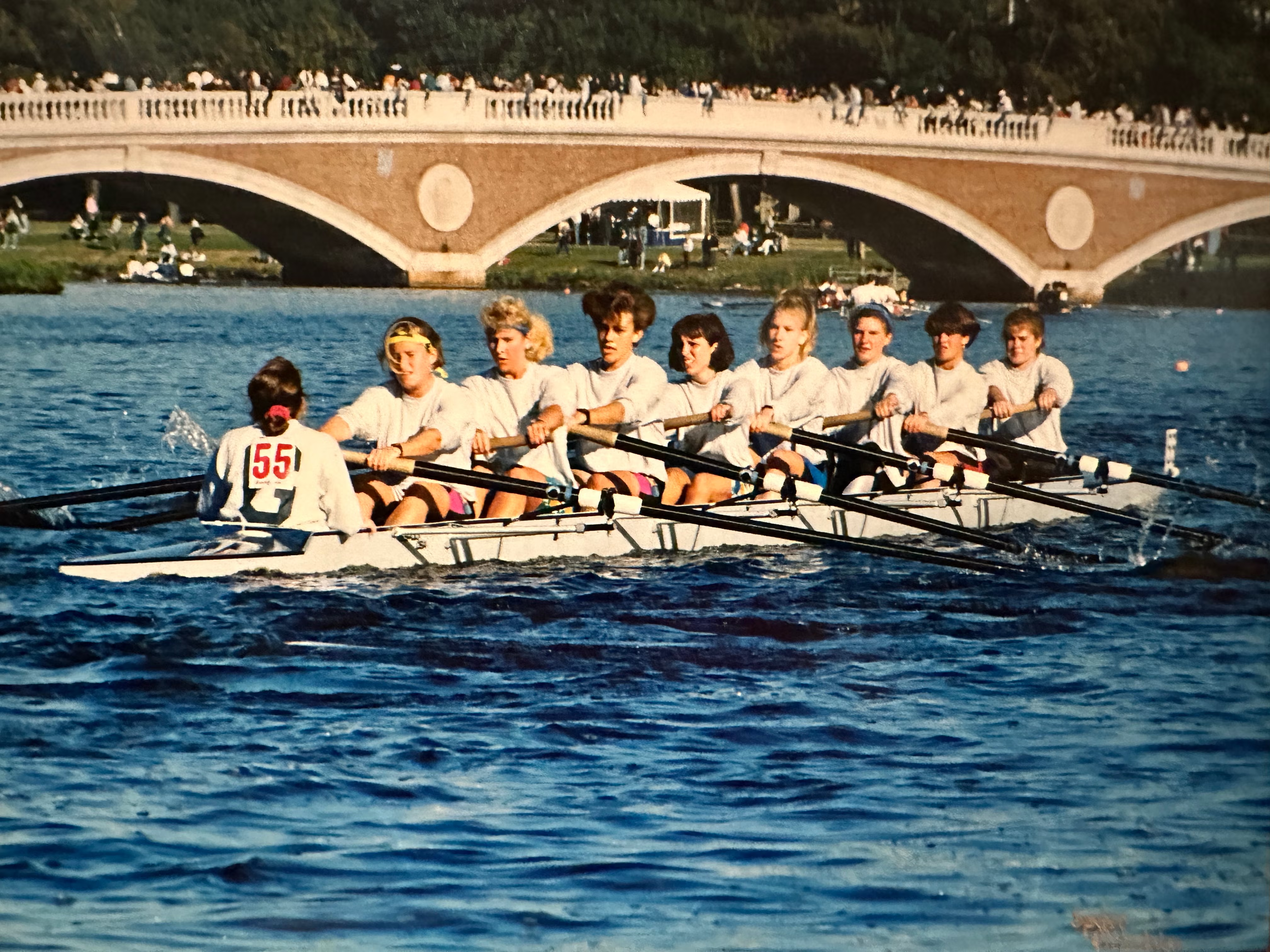
How did your time at SFS help inform what you do now?
My experience and education at SFS formalized that I would be a student of international affairs for life and a critical consumer of information and media. I think back on those briefing packages! As a general counsel in a U.S. multinational with a global footprint, I’m advising executives on how to manage any number of matters, from the impact of geopolitical issues, including tariffs, or understanding regulatory compliance, to understanding regimes and enforcement priorities in other parts of the world and here at home. It is that fundamental foundation of critical thinking and problem-solving skills that I learned at Georgetown that lets me follow through on that. Also, as I advise and have credibility in this space, I also have direct responsibility for government and public affairs at Ingredion.
So you see, my experiences and what I learned helped to broaden my career and create opportunities as I went along. Even today, every time I can, I join the “Fast Break” SFS briefings for alumni, and I continue to learn from the experts and the leaders at Georgetown.
I want to ask specifically about compliance and regulations from the corporate perspective. We are in a time during which it seems like a lot of regulations are being rolled back by the U.S. government in different sectors. So I’m wondering, in your view, what is the case for the necessity of regulations and compliance with them? Why do we have regulations?
There’s a simple, one-word answer: predictability. Businesses need predictability to understand the rules of the road and which way the traffic is flowing. Companies need predictability to be able to plan, to develop strategies, to be able to invest for growth. If you want to do anything at scale, you have to have that predictability. The other players and your stakeholders around you need equally to understand the rules of the road and which way the traffic is flowing. This allows us to communicate with our investors, our other stakeholders and communities in a way that they can rely on and understand. I think it’s really quite straightforward.
Having said that, we do need to strive for the right balance between bureaucratic red tape or administrative overload at one extreme and entrepreneurial freedom at the other, with socio-political and other issues lying across the entire spectrum. This is where it gets complicated, and it is not a simple ‘numbers game’ that ‘less is more’. Whether you have or need 10 regulations or five depends on the nature, breadth and depth, and strategic importance of the underlying issue. I guess I’d add that sensible regulation that has an opportunity to be debated publicly can really work. It is hard work, and it has an essential place in society.
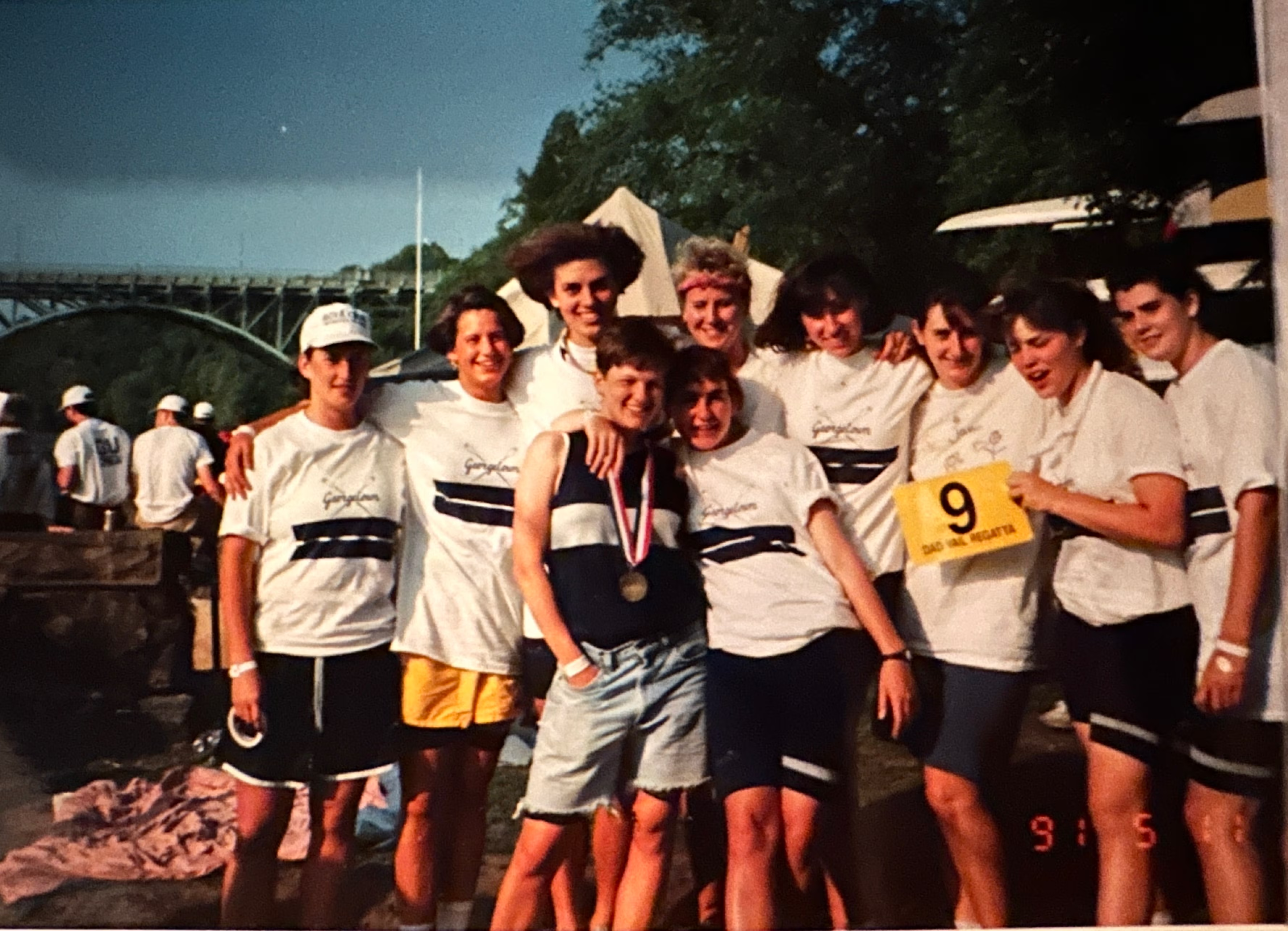
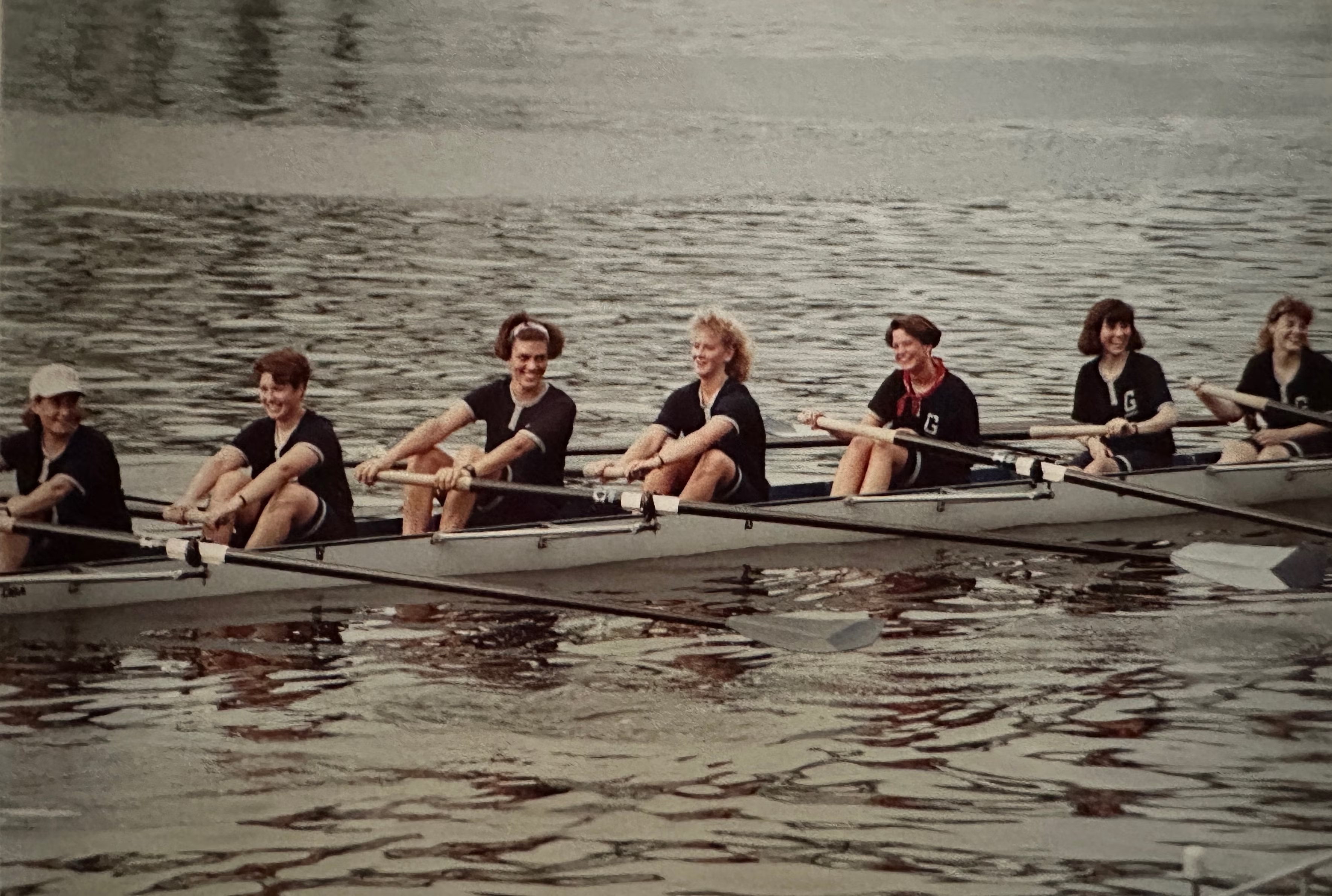
What advice would you give to current SFS students about how to make the most of their time here?
Lean in completely. Follow your passions, because there is something for everyone, and there’s something that you didn’t even know was for you until you stumble across it on campus! Get involved, and it will enrich your experience. I was on the women’s varsity crew team (Never row!). I also served in the Blue and Gray Society, giving tours of campus. If I could go back and do it again, I’d join every club. I’d learn another language. I’d get an internship. Don’t edit yourself: try everything that you can sustain in your time. Four years is so short. You will take learnings, experiences, real friendships and community from that time forward with you for the rest of your life. Try it all. Hoya Saxa!
